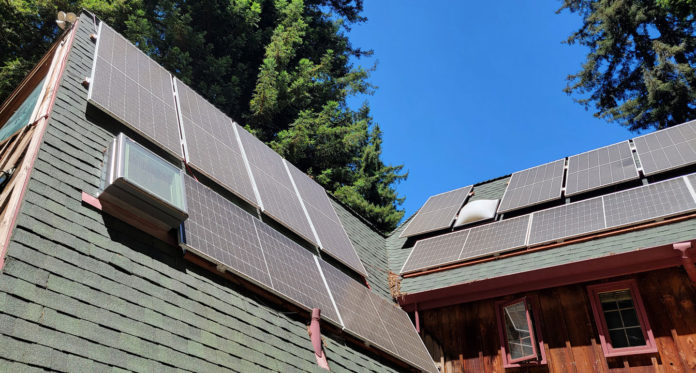
“I think a bill can be big or it could be beautiful, but I don’t know if it could be both.” —Elon Musk
Planning became possible when Donald Trump signed off a mega bill, which simultaneously decreases taxes and welfare spending while discouraging immigration; it increases deficits, border walls and detention, golden dome defense and school choice scholarships.
Financial planning is difficult without assets: those who do not work, study, volunteer, train for jobs or care for young children 80 hours a week will likely lose Medi-Cal or SNAP benefits. The undocumented face deportation and students encounter limits on borrowing and tighter collections.
Low earners might get a thousand-dollar tax break, but earners over $217,000, writes the Tax Policy Center, expect tax cuts of $12,500. Trump now exempts from tax gifts or estates up to $15 million per person. How does Trump shift strategic planning for middle America?
Trump Taxes
Trump preserves high standard deductions and limited Schedule A itemized deductions for state and local (SALT) taxes, charity, mortgage interest and miscellaneous deductions, like union dues or tax prep fees. With a $500,000 income cap, this bill raises indexed SALT limits to $40,000 between 2025 and 2030. And many wealthy in California or 35 other states find passthrough company loopholes that let them deduct SALT.
American car buyers may now deduct $10,000 of loan interest. Trump now allows singles wage deductions of $12,500 for overtime and $25,000 for tips. Seniors receive a $6,000 larger standard deduction from 2025 through 2028; Trump claims 14 million will benefit.
Though child tax credits will rise to $2,200, Trump phases out solar and wind energy credits, EV credits and energy efficient home credits. Forbes attests: “If cheap wind, solar and batteries are handicapped in preference to expensive almost-defunct coal power plants, commercially unproven SMRs (small modular nuclear reactors), and next-gen geothermal methods, then prices of electricity will rise.” CBS estimates energy price increases of 8 to 10%. I heartily recommend that taxpayers install solar or wind projects, like mine, right NOW, to get 30% credits that expire Dec. 31.
Deficits, Debts and Deficient Housing
Conventionally, economists argue about paying down federal debts in times of peace and prosperity, spending more when troubles arise. Trump’s bill increases the current deficit largely with tax cuts and raises debt ceilings to $5 billion. With current deficits of $36 million, the Congressional Budget Office plots $3.3 trillion of additional debts over the next decade, with additional interest of $700 billion. The Tax Foundation predicts GDP gains of 1.1% to offset revenue losses but longrun GNP would rise only 0.4% because of higher interest payments to foreigners. Tariffs could not pay deficits this big.
Elon Musk called Trump’s budget “debt slavery” and fiscal hawks, like Rand Paul, oppose higher debt ceilings. Oversupply of bonds may raise yields by driving prices down. Fear of inflation from devaluation is likely if deficits raise fear of defaults. Already the dollar has lost value and America its sterling Moody’s Aaa credit rating. The resulting insecurity certainly discourages bond investing and higher taxes in the future to pay interest may someday lower stock prices.
For now, fear-based high interest rates slow home buying, car purchases and credit card buying that stimulate the whole economy. Trump implores companies to “eat” tariffs, but CNN reports planned price hikes from Best Buy, Ford, Walmart, Mattel, Adidas and Stanley. Supply-chain disruptions due to tariffs or deportations accelerate deficit-caused inflation, so the Fed defies Trump with higher interest rates that deter home purchases.
Investing with Trump Rules
Looking for good? Trump encourages babies to invest with temporary $1,000 “baby bonus” accounts in market index funds, which could be augmented by $5,000 annually. Securities investors may benefit most from the pro-business environment created by Trump’s low 21% corporate taxes with full expensing of domestic R&D costs, bonus depreciation to write off equipment and opportunity zones. He encourages domestic drones and flying taxis.
Offshore, Trump will liberalize oil leases and whaling deductions as he gives tax credits to nuclear, hydropower and geothermal energy firms—and coal for steel—so now is time to buy dirty domestic energy and industrial plants. “Drill baby drill!”
Robert Arne, EA, CFP, MS, of Carpe Diem Financial Life Planning, is a Santa Cruz Mountain Certified Financial Planner who gives holistic financial advice as his client’s fee-only fiduciary. He has taught Estate Planning at Golden Gate University and prepared dozens of trust returns. These articles are not personal financial, mortgage, tax or investment advice; consult appropriate professionals. Learn more at www.carpediem.financial.











